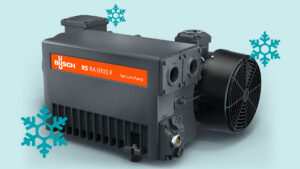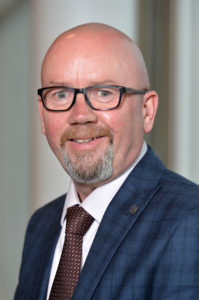Grundfos Reduces Work Accidents
Grundfos has reduced the work accident frequency by 35% since the year 2000. Despite the expansion in Group activities with production in Finland and Hungary, the number of accidents in 2003 was 80 fewer than in 2000.
Grundfos has made a concerted effort to reduce the number of work accidents by carefully following up on all accidents that occur and making the necessary changes to work procedures to avoid reoccurrence. In addition, as part of the Group's preventive work, Grundfos now also records accidents that have never happened. These cases relate to near-accidents.
The Group's American production company has gone one step further. They do not wait until the incidents become near-accidents, but register them at the time they would normally pass unnoticed as part of day-to-day work. This has been achieved by identifying the critical movements that lead to accidents and by subsequently motivating staff to change their work routine. The critical movements often become part of the daily routine because they make it possible to carry out the work more easily, rapidly or in a more comfortable manner.
Grundfos pumps capable of reducing CO2 emission
The Group's initiatives and results are described in the environmental report that documents that the pump manufacturer once again managed to improve sustainability in its activities in 2003. As an example, the year's sale of energy-saving pumps has led to a reduction in global electricity consumption that corresponds to the annual electricity consumption of 111,415 households. The impact of pump manufacture on the environment has also been reduced – the indexed electricity consumption by 10% since 2000, the indexed water consumption by 7% and the indexed amount of chemical waste by 5%.
To a great extent, the results have been achieved thanks to staff involvement. The number of staff suggestions for environmental improvements has increased dramatically in recent years, and the trend continues with 9,776 suggestions in 2003 compared with 6,398 the previous year.
No paper has been used for the 2003 Group environmental report – it is only available in electronic format on the Grundfos website.
Source: Grundfos Holding A/S







